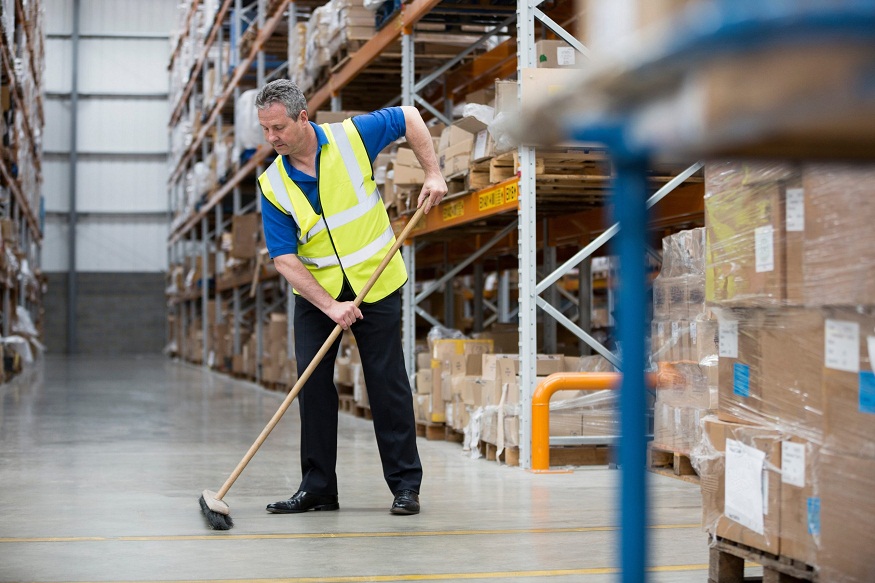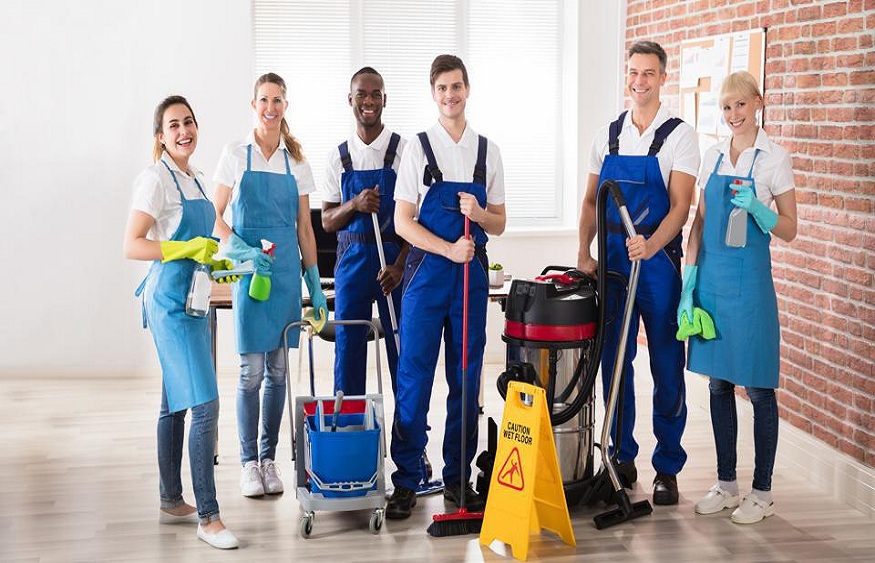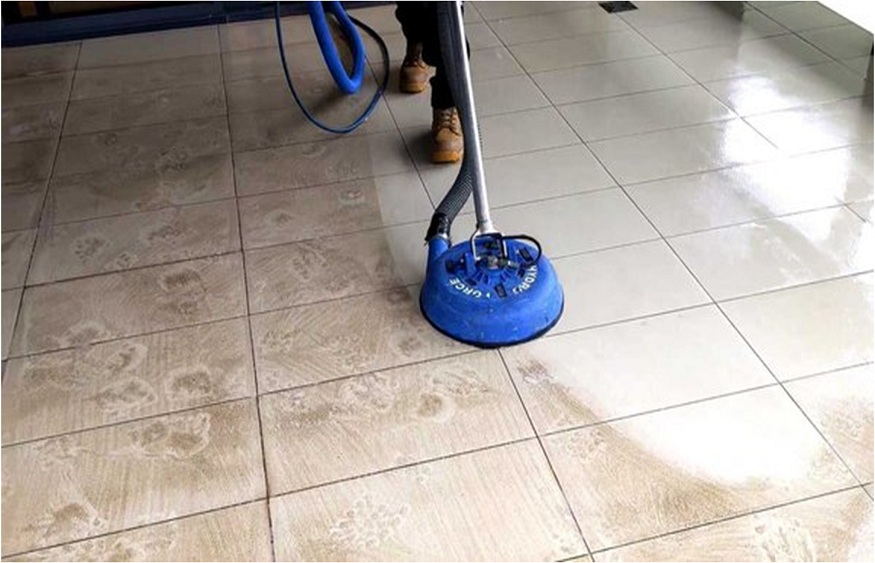Warehouses are the backbone of logistics and supply chain operations, making efficient, safe, and organized environments essential for success. In New Jersey, where warehouses are central to the flow of goods along the East Coast, maintaining clean floors is a fundamental but often overlooked part of overall warehouse management. This focus on cleanliness extends beyond aesthetics, playing a vital role in both safety and efficiency. Here, we’ll dive into why warehouse floor cleaning NJ are essential to and how they significantly impact safety and productivity.
1. Enhancing Safety with Clean Floors
Reducing Slips and Falls
Slip and fall accidents are among the most common hazards in any workplace, and warehouses are no exception. Spilled liquids, dust buildup, and debris can make surfaces slippery, posing a high risk for slips and falls. These incidents not only lead to potential injuries for workers but also result in lost hours, costly workers’ compensation claims, and potential liability issues. By regularly cleaning and maintaining floors, warehouse managers can greatly reduce these risks. This not only protects employees but also reinforces a culture of safety within the organization.
Minimizing Dust and Allergens
Warehouses, especially those storing raw materials, are prone to dust and dirt accumulation. When floors are neglected, these particles can become airborne, impacting air quality and leading to respiratory issues among workers. Regular cleaning helps to keep dust levels in check, creating a healthier environment. In addition, warehouses that follow good cleaning practices can expect fewer sick days among employees, reducing the likelihood of work disruptions due to health issues.
Preventing Accidents with Organized Spaces
A clean floor often means an organized space. When floors are kept clean, there is less clutter, and pathways are kept clear, making it easier for forklifts, carts, and workers to move about without obstruction. Clean, unobstructed floors reduce the risk of accidents and help streamline workflow. This level of organization also helps in emergency situations by providing clear evacuation paths and easy access for first responders.
2. Boosting Efficiency through Clean Floors
Faster Movement of Goods and Personnel
Efficiency is key in warehouse operations, and clean floors play a surprising role in supporting this. With smooth, clutter-free surfaces, machinery such as forklifts can move faster and with greater precision. Workers can also move with confidence, allowing them to complete tasks more quickly. Over time, this increase in productivity adds up, enhancing the overall efficiency of the warehouse.
Prolonging Equipment Lifespan
Warehouse floors are subjected to significant wear and tear from equipment and foot traffic. Debris, dust, and dirt particles can accelerate wear on machines, causing them to break down more frequently. Forklifts, for instance, are more susceptible to damage when operated on dirty floors, as particles can become lodged in their mechanisms. By keeping floors clean, warehouses can reduce the strain on their equipment, minimizing the need for repairs and extending the lifespan of valuable machinery.
Improved Inventory Accuracy
In a clean and organized warehouse, inventory is easier to track and manage. Clean floors help prevent products from getting lost or misplaced due to clutter. Clear pathways and well-defined spaces allow for better organization, and employees can quickly locate items. This level of organization reduces errors in inventory management, which can prevent costly delays and ensure customer orders are fulfilled accurately and on time.
3. Long-Term Cost Savings through Clean Floors
Lower Maintenance Costs
Routine cleaning may seem like an additional expense, but it actually leads to cost savings in the long run. Clean floors experience less wear and tear, reducing the frequency of repairs or resurfacing. Regular floor cleaning also helps in identifying small issues, such as cracks or uneven areas, before they turn into larger, more expensive problems.
Reduced Insurance Costs
A clean, well-maintained warehouse with a strong safety record is often eligible for lower insurance premiums. Insurance companies consider a warehouse’s safety practices and track record when setting premiums. Warehouses that prioritize cleanliness and safety are less likely to experience accidents, which can translate to lower insurance costs over time.
Preventing Product Damage
In NJ warehouses, a significant amount of merchandise is handled daily, making the environment a critical factor in preserving product quality. Dirty floors can increase the likelihood of goods being damaged through contamination or contact with dirt and debris. For warehouses handling sensitive items, such as electronics or food products, clean floors are essential for maintaining product quality, thereby reducing waste and returns due to damage.
4. Improving Employee Morale and Job Satisfaction
A clean and organized workspace is also linked to better employee morale. Workers who operate in clean environments tend to feel more respected and valued, which can lead to higher job satisfaction and lower turnover. By investing in the cleanliness of the warehouse, NJ businesses send a message that they care about their employees’ well-being. This investment not only enhances productivity but also attracts and retains high-quality talent, providing an additional edge in today’s competitive job market.
5. Implementing an Effective Floor Cleaning Program in NJ Warehouses
To maximize the benefits of clean floors, New Jersey warehouse managers can take several practical steps to implement an effective floor-cleaning program:
- Regular Cleaning Schedule: Create a cleaning schedule that aligns with the warehouse’s daily operations. High-traffic areas may require more frequent cleaning, while lesser-used spaces can be cleaned less often.
- Use of Proper Cleaning Equipment: Invest in commercial-grade cleaning equipment suitable for warehouse floors. Floor scrubbers, vacuums, and mops designed for industrial use can make the cleaning process more efficient.
- Employee Training: Train staff on the importance of keeping floors clean and provide guidance on spotting hazards. A culture of cleanliness begins with every employee understanding their role in maintaining safety.
- Environmental Considerations: NJ is committed to environmental responsibility, so choosing eco-friendly cleaning products that meet state regulations can further support a business’s green initiatives.
Conclusion
The impact of clean floors in NJ warehouses extends far beyond appearance. By prioritizing floor cleanliness, including essential services like dumpster pad cleaning NJ, warehouses can create safer environments, streamline operations, and achieve long-term cost savings. From preventing accidents to enhancing productivity, clean floors and dumpster areas are foundational elements of successful warehouse management. For NJ businesses, a commitment to comprehensive cleanliness is not only a wise operational decision but also an investment in the future of the company, its employees, and its customers. Clean floors and dumpster pads are, quite literally, the groundwork for a safer, more efficient, and more profitable warehouse.





